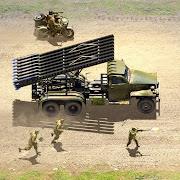In Fortnite’s Ranked Mode, your match results directly influence your position within the ranking system. As you climb the tiers, you'll face increasingly skilled opponents and unlock more rewarding prizes. This mode has replaced the former Fortnite Arena, offering a more transparent and balanced progression. Let's dive into how the system functions and what it takes to elevate your rank.
Table of Content ---
- How the Ranking System Works in Fortnite
- How to Raise Your Rank
- Placement in the Match
- Eliminations
- Team Play
- What Rewards Can You Get
- Useful Tips for Ranking Up
How the Ranking System Works in Fortnite
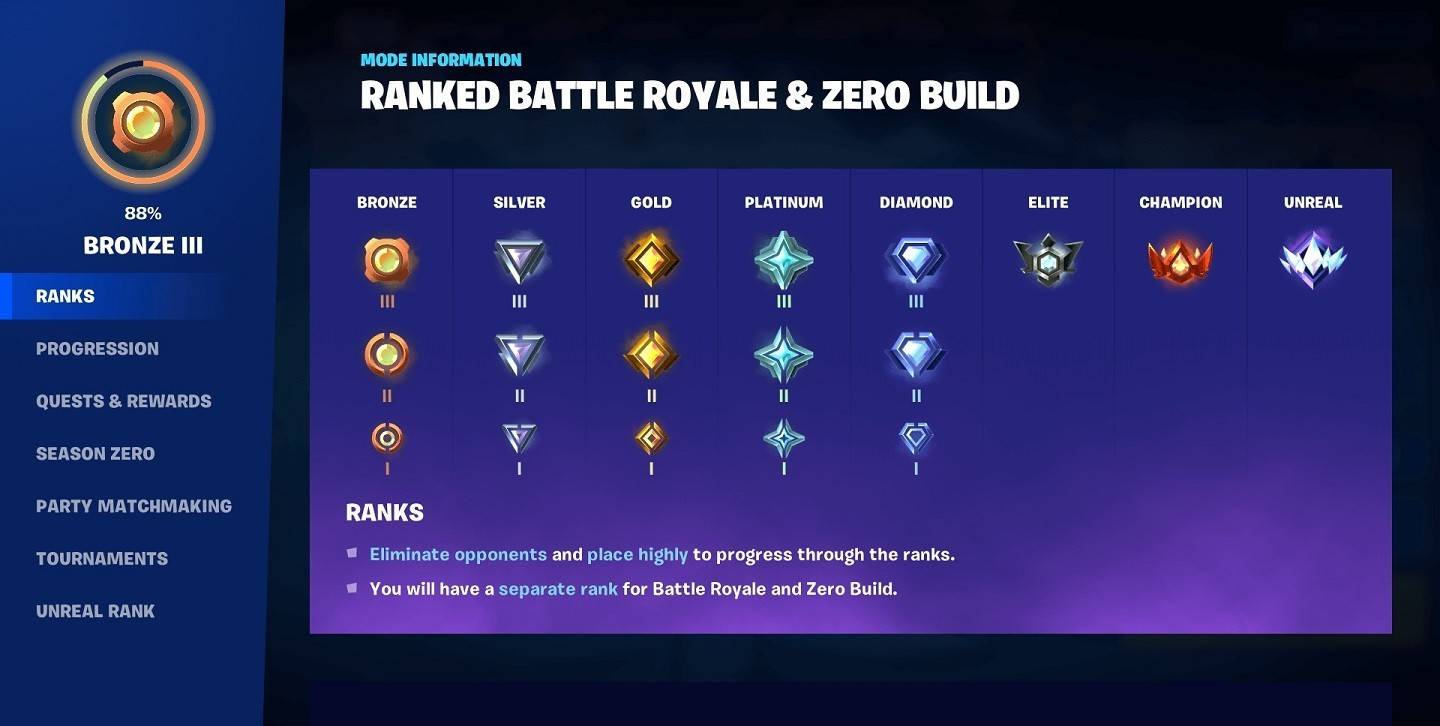 Image: fortnite.com
Image: fortnite.com
Previously, Fortnite's Arena mode relied on accumulating arena points, which could be gained simply by playing numerous matches, often leading to unbalanced gameplay. The new Ranked Mode addresses this by introducing a calibration period at the start, where your initial performance sets your starting rank. Your final rank is determined by your success in matches, including eliminations, overall effectiveness, and your placement.
Fortnite's Ranked Mode features eight ranks:
- Bronze—The entry level for beginners getting accustomed to competitive play.
- Silver—For players with some experience but inconsistent results.
- Gold—For those confident in their mechanics and tactics.
- Platinum—Where shooting skills and strategic positioning become crucial.
- Diamond—A level where complex strategies are the norm, intensifying matches.
- Elite—Reserved for strong, consistent players.
- Champion—For top-tier players who excel in skill and strategy.
- Unreal—The pinnacle, home to the elite of the elite.
The first five ranks are split into three sub-divisions (e.g., Bronze I, II, III). Matchmaking is based on your rank to ensure fair competition, though at higher ranks like Elite, you might face opponents from nearby tiers to minimize wait times.
Your rank can fluctuate; consistent losses can demote you, but once you reach Unreal, you're there to stay, with an internal ranking system to determine your standing among the best.
At the start of a new season, you'll recalibrate, but your previous rank influences your starting point. High-ranked players won't start from the bottom but might be placed slightly lower to re-prove their skill.
How to Raise Your Rank
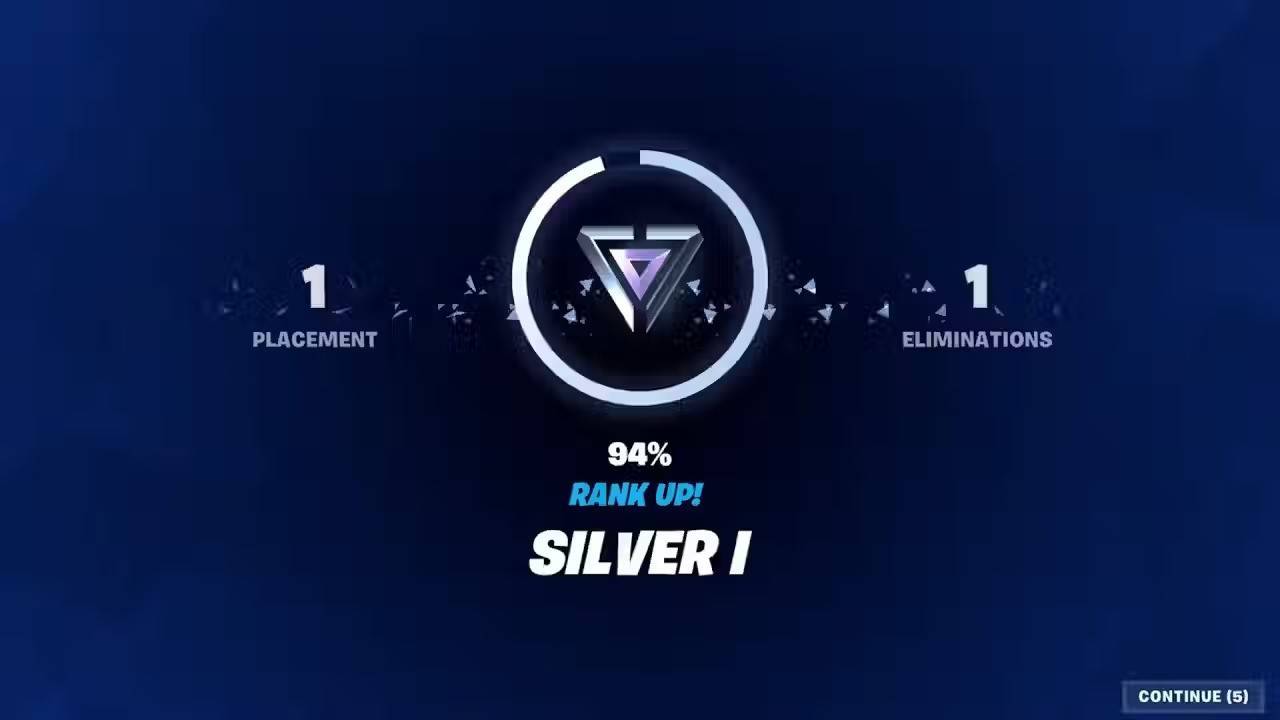 Image: dignitas.gg
Image: dignitas.gg
Your progression in the ranking system hinges on your performance in matches. As you advance, the competition intensifies, and the rules for gaining rating points adjust accordingly.
Placement in the Match
Your final position in a match is crucial for climbing the ranks. The higher you finish, the more rating points you earn:
- Winning a match yields the highest rating boost, as it's the ultimate measure of success.
- Finishing in the top 10 also significantly boosts your rating. Consistent high placements contribute to steady progression.
- Early elimination earns no points and can even decrease your rating at higher ranks.
To improve your rank steadily, focus not only on eliminating opponents but also on surviving as long as possible.
Eliminations
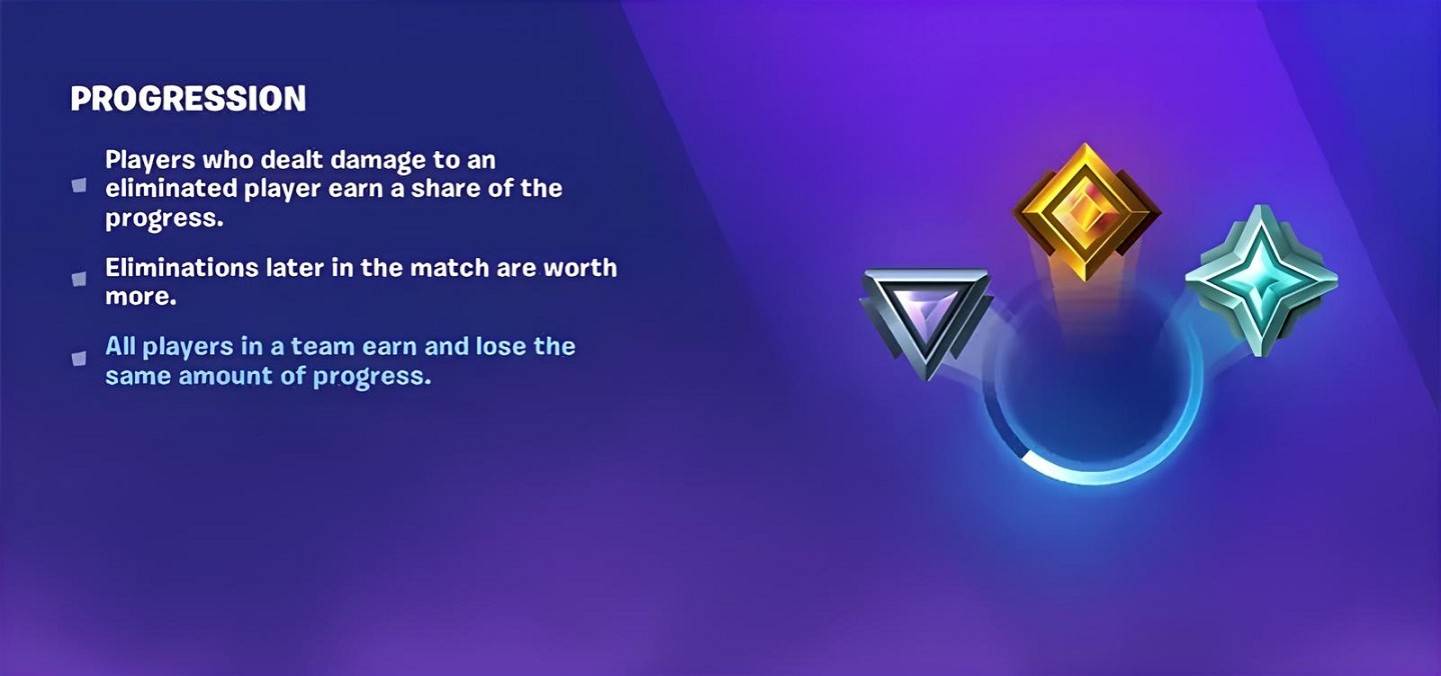 Image: obsbot.com
Image: obsbot.com
Eliminating opponents directly impacts your rank:
- Each kill increases your rating, with the impact varying by your current rank. Lower ranks yield fewer points per kill, while higher ranks offer more.
- Late-game eliminations are more valuable than early ones, as you're facing stronger opponents.
- Both personal and team eliminations count. Even if a teammate finishes off an opponent you damaged, you still gain rating points.
An aggressive playstyle can accelerate your ranking, but it also risks early elimination. Balancing offense with strategy is key.
Team Play
In Duos and Squads, your contribution to the team's success is as important as individual achievements. Healing allies, reviving teammates, and sharing resources keep your team in the fight and increase your chances of winning.
Effective teamwork provides a collective advantage, speeding up rank progression. Even with fewer kills, you can earn a stable rating by supporting your team effectively.
What Rewards Can You Get
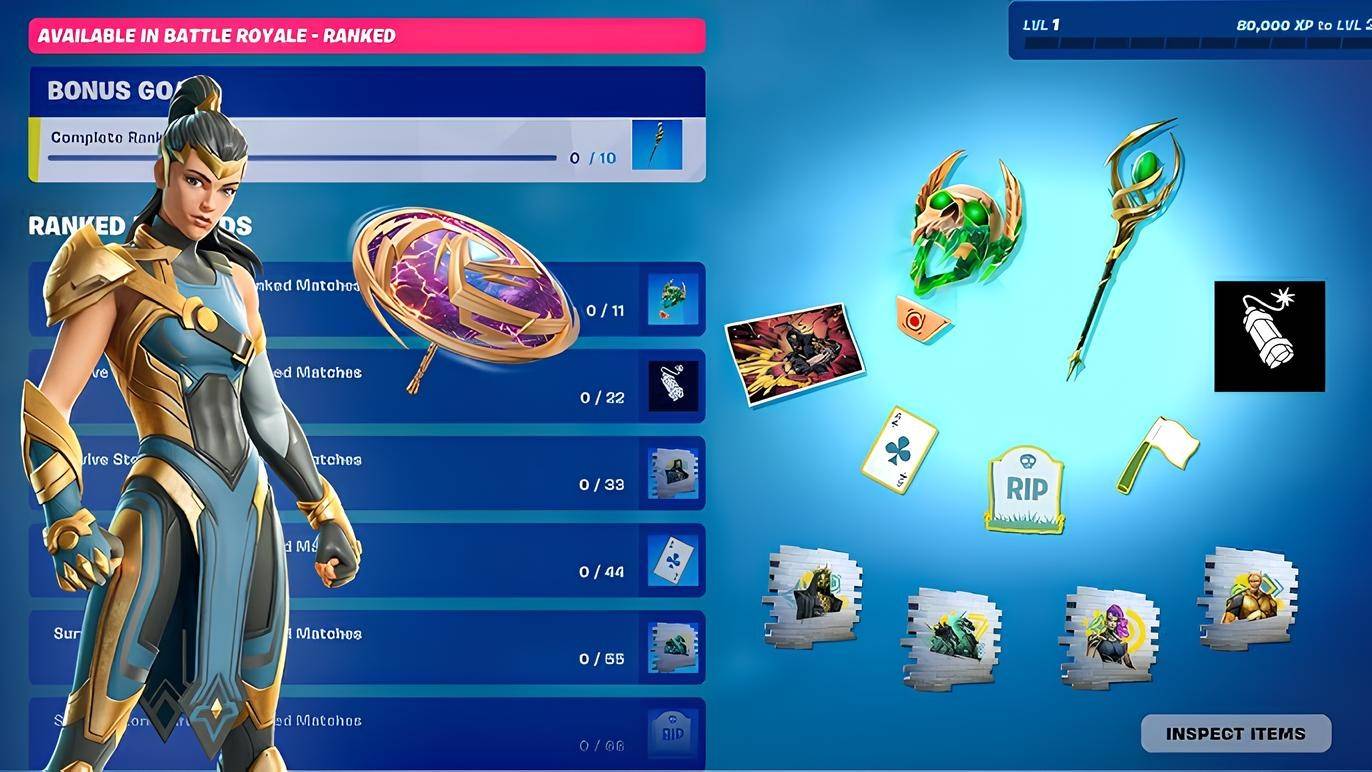 Image: youtube.com
Image: youtube.com
Fortnite’s Ranked Mode not only challenges your skills but also offers unique rewards for progression and completing special challenges:
- Rank emblems and badges displayed in the lobby to showcase your current level.
- Emotes and sprays to highlight your achievements in matches.
- Exclusive skins awarded for completing special challenges, available only during the season.
Reaching the Unreal rank grants you a unique status and a spot on the global leaderboards, which update in real time. High ranks can also qualify you for Fortnite esports events, provided you meet the tournament criteria.
Useful Tips for Ranking Up
 Image: fiverr.com
Image: fiverr.com
To advance in Fortnite’s Ranked Mode, you need both strong gameplay skills and a strategic approach:
- Study the map and key areas to quickly find resources and weapons, and choose advantageous positions.
- Play to your strengths. Aggressive players can adopt a high-risk, high-reward style, while tactical players might prefer a more patient approach.
- Choose your landing spot based on your playstyle. Busy locations for aggressive tactics, quieter zones for a cautious start.
- Control the high ground for tactical advantages. It's easier to shoot from above and harder for enemies to hit you.
- Stay aware of your surroundings. Stay in the safe zone but plan escape routes to avoid being trapped.
- Play with trusted teammates. Coordinated team actions often decide the outcome of ranked matches.
- Develop quick reactions and speed. Instant decision-making and building cover on the fly help maintain control.
- Learn from top players by watching professional streams and analyzing their tactics.
- Keep an eye on updates. Epic Games regularly changes weapon balance, map elements, and mechanics. Stay informed and adjust your strategy accordingly.
Consistent practice, learning from mistakes, and adapting to various situations will gradually help you move up. Don't fear tough matches—keep improving and enjoy the process. Over time, you'll see steady progress in the ranking system.








